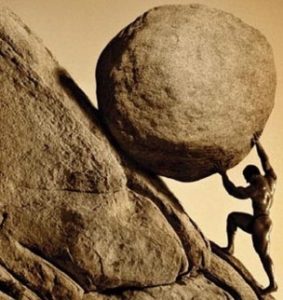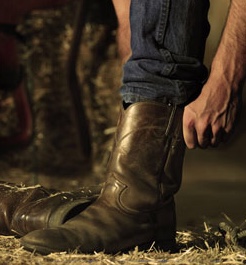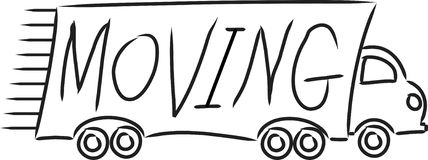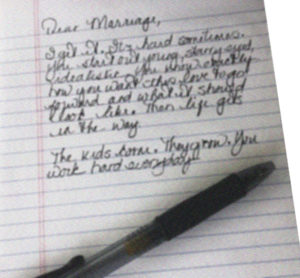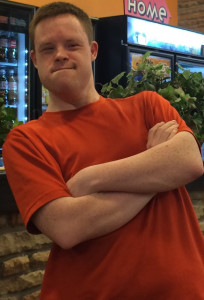 Jon is often a night owl and I sometimes try to be one with him, just to be with him. A few late nights ago, I was lying on the sofa watching determined chefs attempt to cook their best dish in a ridiculous amount of time, competition.
Jon is often a night owl and I sometimes try to be one with him, just to be with him. A few late nights ago, I was lying on the sofa watching determined chefs attempt to cook their best dish in a ridiculous amount of time, competition.
Jon was rustling around in another part of the house.
At one point he came and stood behind me and began repeating, “He’s gone. He’s gone. He’s gone.”
I‘m never sure if Jon is parroting a movie line he’s heard or trying to express a thought. I turned the TV volume down.
“Who’s gone, Jon?”
More repeating, “He’s gone. He’s gone…”
I asked again.
“My Dad. He’s never coming back.”
Grief does not play out on a short path. The journey is long and arduous. We have moments now, when we laugh and smile, but there’s still a pile of sad and edgy and raw and vulnerable. There’s still many days it’s difficult to wrap our brains and hearts around the truth that Mike is missing from us.
My son in his simple, yet profound voice has stated, here we are, still struggling.
Where will this journey take us? I don’t know. I do know this. When our son was born, I had to become an advocate for the disabled. A few years later I was run over by chronic illness and eventually took up the banner of reclaiming health through lifestyle choices. Now that close and sudden death has taken my breath away, I will become a spokesperson in this modern, sanitized, look the other way, death and grief illiterate western culture, for those whose hearts break. For those who walk the long, shadowed path of living after great loss.
If it’s true that our mess becomes our message, then it appears I’ve been given something to share. I volunteered for none of these difficulties, (I mean, come on, who does?) regardless, I’m learning our brokenness is not to be hidden or disregarded, but is meant to come along side another, reach out, weep, hug, love with feet and hands on, encourage, and proclaim, “I don’t have all the answers. I don’t know how to fix this but I will not run from your pain. I will not ignore your struggle. I see you and I am here.”
In the time of His greatest sorrow, Jesus wanted his friends near him. As he grieved and struggled with what was ahead, he longed for human companionship. Near-ness.
“What, you couldn’t even stay awake with me for one hour?” (Matthew 26:40) There was nothing his follower friends could do to change what was about to happen but He needed to know they were there for Him.
I have come to believe our main calling and purpose in this life is to walk beside each other in all of it’s joy and brokenness. To show up. To just be there.
Do that for someone you know today.
And I pray, if and when needed, someone will do the same for you.
2 Corinthians 1:3-4 “Blessed be the God and Father of our Lord Jesus Christ, the Father of compassion and the God of all comfort, who comforts us in all our troubles, so that we can comfort those in any trouble with the comfort we ourselves have received from God.”


